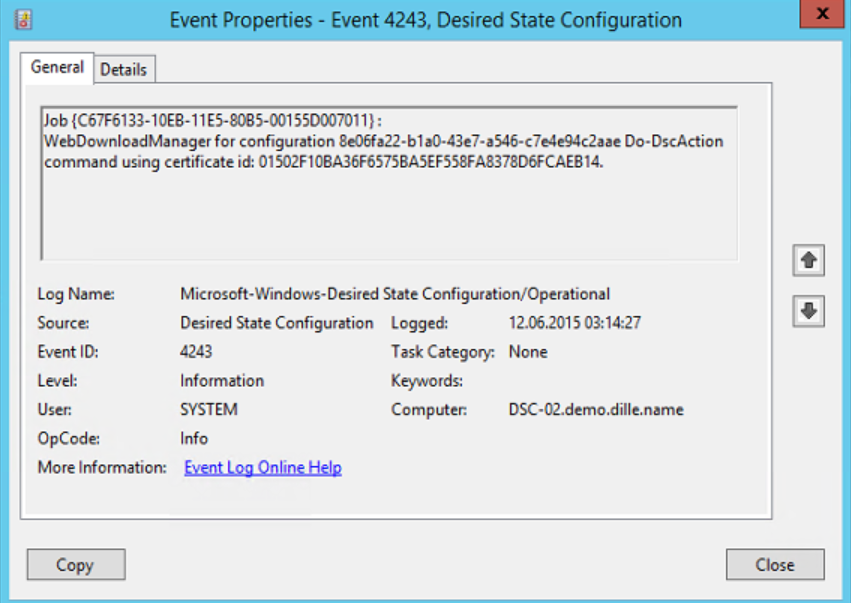Securing Access to #PSDSC Node Configuration on a Pull Server
Published on 12 Feb 2015Tags #Desired State Configuration #DSC #PowerShell #PSDSC
In one of my posts about PowerShell Desired State Configuration, I presented several methods for assigning and managing GUIDs to pull nodes. The PowerShell team replied in their blog explaining the security issues with pull servers. But finally a solution is available to secure access to #PSDSC node configuration.
Anyone can pull node configurations
When a pull client connects to its configured pull server it uses the following request to download the configuration:
https://pullserver.example.com/PSDSCPullServer/PSDSCPullServer.svc/Action(ConfigurationId='9565b711-30c2-43d5-a929-2167955733d3')/GetAction
Apparently anyone can build such a request. The only obstacle is obtaining a valid GUID but this method only relies on security by obscurity.
Secure pull servers do not solve this
Let’s assume you are in possession of a valid GUID and you know how to request it from a pull server. Securing the pull server using SSL/TLS does not protect the data offered by the server because SSL/TLS only establishes the authenticity of the server and protects your payload from eavesdropping.
Client authentication protects node configurations
As soon as you start digging into the long list of events generated by a pull client, one stands out among the others:
Apparently, the pull clients offers its configured certificate to the pull server for authentication. When I first noticed this I wondered whether the pull server can be configured to require client certificates. Unfortunately I have not been able to test this.
But Ben Gelens has written an excellent blog series about securing a pull server using client certificates. In part 2, he explains how to setup your PKI to issue the kind of certificates to make this work. Later in part 4 he demonstrates configuring the pull server to require client certificates and accept only those issues using a given template. In the same part, he describes how to setup the pull client to use the correct kind of certificate to download the node configuration from the pull server.
Summary
Implementing client certificates effectively restricts access to your node configurations to those clients in possession of a certain certificate. Assuming that only trustworthy clients are able to obtain and present such a certificate, your node configurations ablre safe from downloading by anyone.
